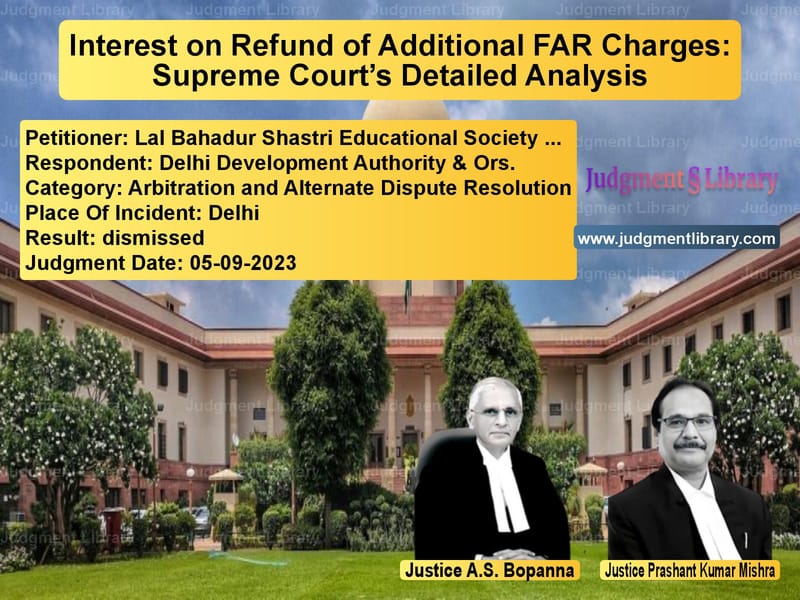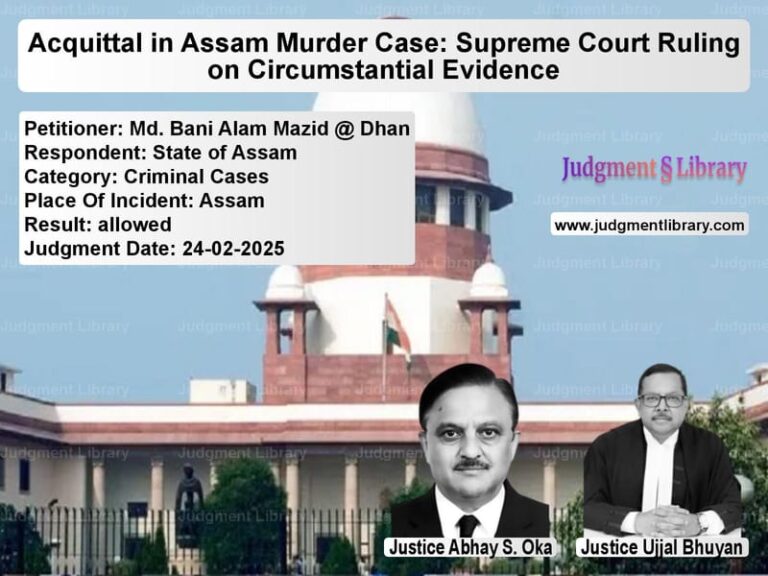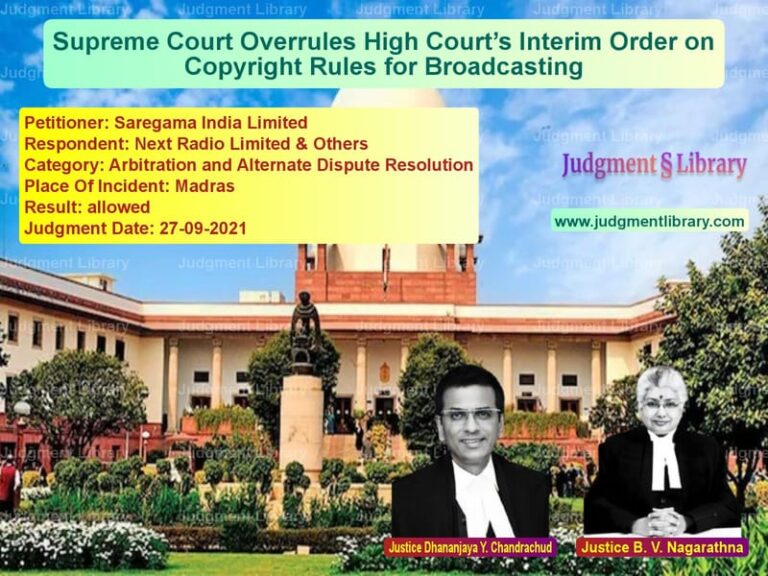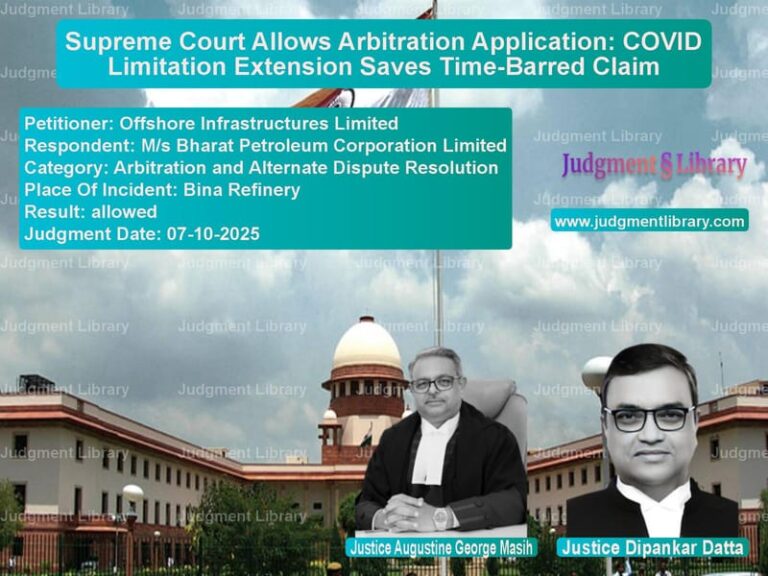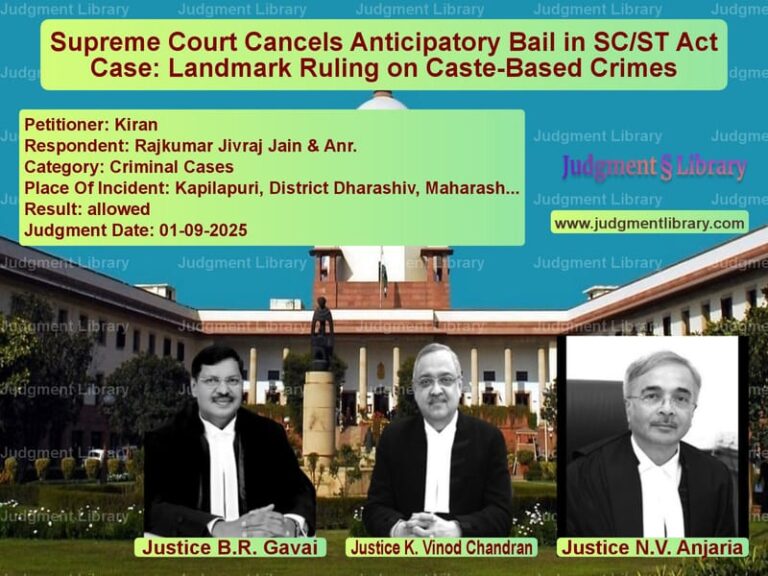Interest on Refund of Additional FAR Charges: Supreme Court’s Detailed Analysis
The Supreme Court of India recently delivered a judgment in the case of Lal Bahadur Shastri Educational Society & Anr. vs. Delhi Development Authority & Ors. The case revolved around the question of whether the petitioners were entitled to interest on the refund of additional Floor Area Ratio (FAR) charges that they had deposited under a disputed notification. The judgment carries significant implications for institutions and organizations that have made payments under legal uncertainty and later sought refunds.
The appellants, both charitable institutions, had initially deposited additional FAR charges as required by a 2008 notification issued by the Delhi Development Authority (DDA). However, a subsequent notification in 2012 exempted certain institutions from such charges. The petitioners contended that since they were ultimately found to be exempt, they should receive not only a refund but also interest for the period during which the amount was retained by the DDA.
Background of the Case
The dispute began when the Delhi Development Authority, exercising its powers under the Delhi Development Act, 1957, issued a notification on October 10, 2008, fixing rates for use conversion, mixed land use, and other charges, including additional FAR charges applicable to institutional plots. The appellants, who are charitable institutions, challenged the imposition of these charges in the Delhi High Court by filing writ petitions.
During the pendency of the petitions, the appellants sought interim relief to enable them to proceed with construction. As a condition for obtaining a revised sanction plan, they offered to deposit the disputed amount with the DDA. The High Court accepted this proposal, allowing them to make the deposit while continuing to challenge the legality of the charges.
While the matter was still under adjudication, the government issued a notification on July 17, 2012, amending the 2008 notification and exempting certain institutions, including educational and healthcare institutions with income tax exemptions, from additional FAR charges. As a result, the issue of whether the original notification was valid or not was never adjudicated by the High Court, as the exemption rendered the dispute moot.
Legal Arguments Presented by the Petitioners
The petitioners, represented by senior counsels Ms. Meenakshi Arora and Shri S. Niranjan Reddy, made the following key arguments:
- The additional FAR charges were unjustified and were later revoked by the government. Therefore, the amount they deposited should be refunded along with interest.
- They relied on the principle of restitution, arguing that when money is retained by an authority without valid justification, it must be returned with compensation.
- They cited the Supreme Court’s ruling in Central Bank of India vs. Ravindra & Ors. (2002) 1 SCC 367, which defined interest as compensation for the use or retention of money.
- They also referred to South Eastern Coalfields Limited vs. State of Madhya Pradesh (2003) 8 SCC 648, where the Court held that a party should not suffer loss due to an act of the Court.
Respondents’ Arguments
The Delhi Development Authority, represented by senior counsel Shri Kailash Vasdev and Ms. Niharika Ahluwalia, countered these claims with the following arguments:
- The petitioners voluntarily deposited the disputed amount, knowing that the legality of the charges was under challenge.
- The subsequent exemption granted by the government did not invalidate the original notification, meaning the charges were lawful at the time of deposit.
- The Supreme Court had earlier dismissed an appeal in SLP (C) Nos.7907-7908 of 2013, upholding the High Court’s decision to deny interest in a similar case.
Supreme Court’s Judgment
After hearing the arguments, the Supreme Court analyzed the legal position and observed:
- The appellants had voluntarily deposited the disputed amount to avail the benefits of additional FAR.
- The 2012 exemption did not retroactively invalidate the 2008 notification or render the earlier charges illegal.
- Since there was no ruling declaring the initial demand illegal, there was no entitlement to interest on the refunded amount.
- The principles of restitution did not apply as the amount was not wrongfully collected but rather deposited voluntarily as a condition for availing benefits.
The Court concluded that the appellants had no legal basis for claiming interest and dismissed the appeal. However, it granted them liberty to pursue remedies before an appropriate forum for any delays in processing the refund.
Implications of the Judgment
This ruling clarifies several key legal principles:
- Entities making voluntary payments under dispute should seek explicit court directions regarding interest at the time of deposit.
- Subsequent exemptions or policy changes do not automatically create a right to claim interest unless there is a ruling declaring the initial charge illegal.
- Authorities retaining funds for extended periods after policy changes may still be liable for delays, but claims must be pursued separately.
Conclusion
The Supreme Court’s judgment in this case provides clarity on the issue of interest on refunded charges. While the appellants succeeded in getting their money back, they failed to establish a legal right to claim interest. The decision underscores the importance of judicial adjudication in such matters and sets a precedent for future disputes involving policy changes and refunds.
Petitioner Name: Lal Bahadur Shastri Educational Society & Anr..Respondent Name: Delhi Development Authority & Ors..Judgment By: Justice A.S. Bopanna, Justice Prashant Kumar Mishra.Place Of Incident: Delhi.Judgment Date: 05-09-2023.
Don’t miss out on the full details! Download the complete judgment in PDF format below and gain valuable insights instantly!
Download Judgment: lal-bahadur-shastri-vs-delhi-development-au-supreme-court-of-india-judgment-dated-05-09-2023.pdf
Directly Download Judgment: Directly download this Judgment
See all petitions in Arbitration Awards
See all petitions in Dispute Resolution Mechanisms
See all petitions in Institutional Arbitration
See all petitions in Judgment by A. S. Bopanna
See all petitions in Judgment by Prashant Kumar Mishra
See all petitions in dismissed
See all petitions in supreme court of India judgments September 2023
See all petitions in 2023 judgments
See all posts in Arbitration and Alternate Dispute Resolution Category
See all allowed petitions in Arbitration and Alternate Dispute Resolution Category
See all Dismissed petitions in Arbitration and Alternate Dispute Resolution Category
See all partially allowed petitions in Arbitration and Alternate Dispute Resolution Category

